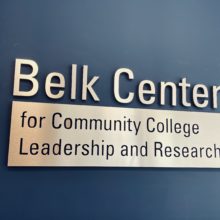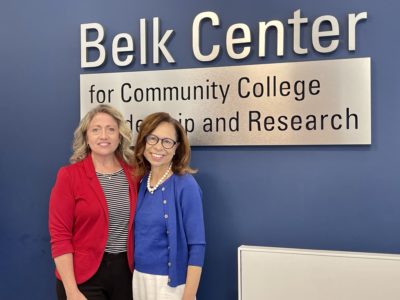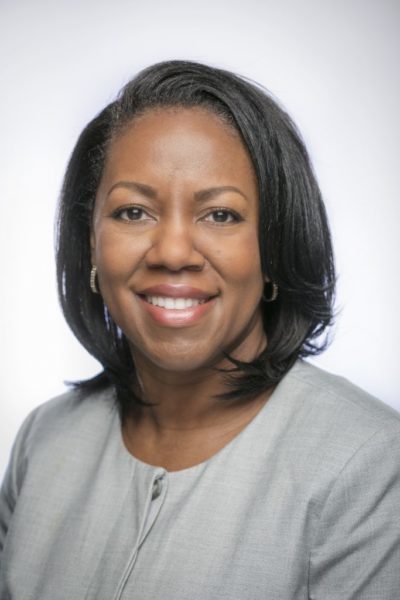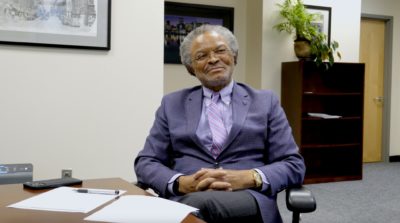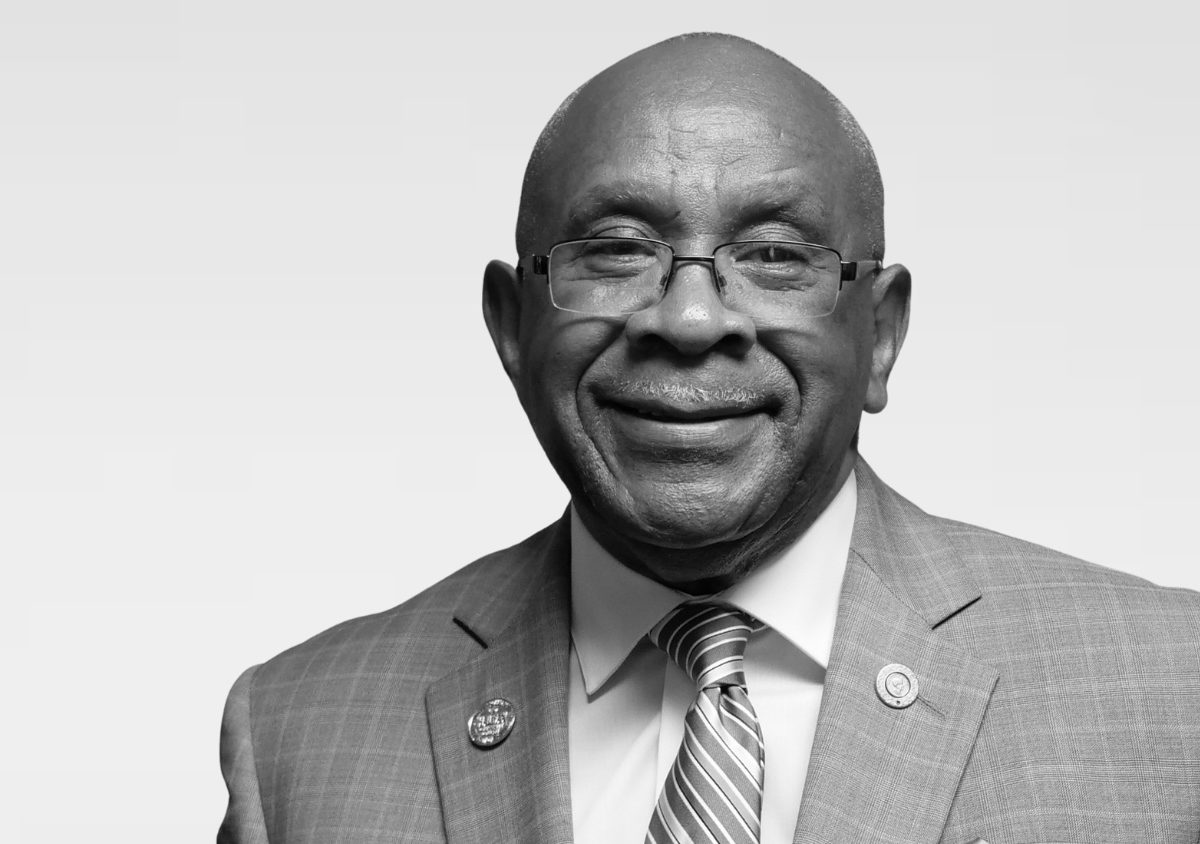

|
|
This profile of Dr. Ervin Griffin is part of the Belk Center for Community College Leadership & Research’s NCCCS History Project Trailblazer profiles. The purpose of the NCCCS Trailblazer Profiles is to highlight and celebrate the work of Asian, Black, Indigenous, and Latin leaders in the North Carolina Community College System, specifically focusing on current and former community college presidents. This profile is written in conjunction with the collection of an oral history interview with Dr. Griffin that will soon be available in the Southern Oral History Project Archives. The interviews were conducted by members of the Belk Center for Community College Leadership staff in spring, summer, and fall 2021. Individuals who have contributed to the profiles include Kenzie Bell, Audrey Jaeger, Erin O’Quinn, Dre’Sha Singleton, and the individual presidents featured. Through these interviews, the Belk Center team hopes to re-center the conversations around who we recognize as important in the history of community college leadership in North Carolina, celebrate the work of our presidents of color, and inspire support for diversifying the presidential leadership pipeline.
When Dr. Ervin Griffin was asked to apply for a job as a president at a college in the North Carolina Community College System, he had doubts about the college’s readiness for an African American president. He knew that if the college was uncomfortable, there was nothing he could do to change that – and ultimately, he did not apply for the job. Months later, another college in the system, Halifax Community College, began a presidential search, and this time, Griffin applied. He was sworn in as president in December 2006, becoming the first African American president in Halifax Community College’s history.
When he first arrived at Halifax Community College, the school was going through difficult times and Griffin knew that he would need to sell the local community on the value of the college.
“I spent just about every Sunday at somebody’s church or somebody’s anniversary party. I did not turn down any invitation I received for at least two or three years,” said Griffin.
His focus on engaging and celebrating the local community paid off and he recalls numerous occasions where people would say, “We’re so glad to see you – we didn’t ever think it was going to happen.”
At first, Griffin didn’t realize why the community thought his engagement was such a big deal, but later, he reflected, “I realized that this place has always been almost a majority minority institution but it never had a Black president. To many people, that was a great breakthrough, and in retrospect, so do I.”
To Griffin, this was a call to action. After realizing the value of his voice in the local community, he worked to find ways to celebrate the diversity of the students he served. One initiative he started was the annual celebrations of American Indian Heritage Month and Black History Month at Halifax Community College.
However, Griffin knew celebration alone was not enough. He also had to ensure that all of his students had role models like themselves to look up to. Says Griffin, “How could I have a school with 60% students of color and 20% faculty of color? That is not a good look.”
Griffin’s work around racial equity at Halifax Community College was recognized, and in 2016, Halifax Community College received the Southern Region Equity Award from the National Association of Community College Trustees.
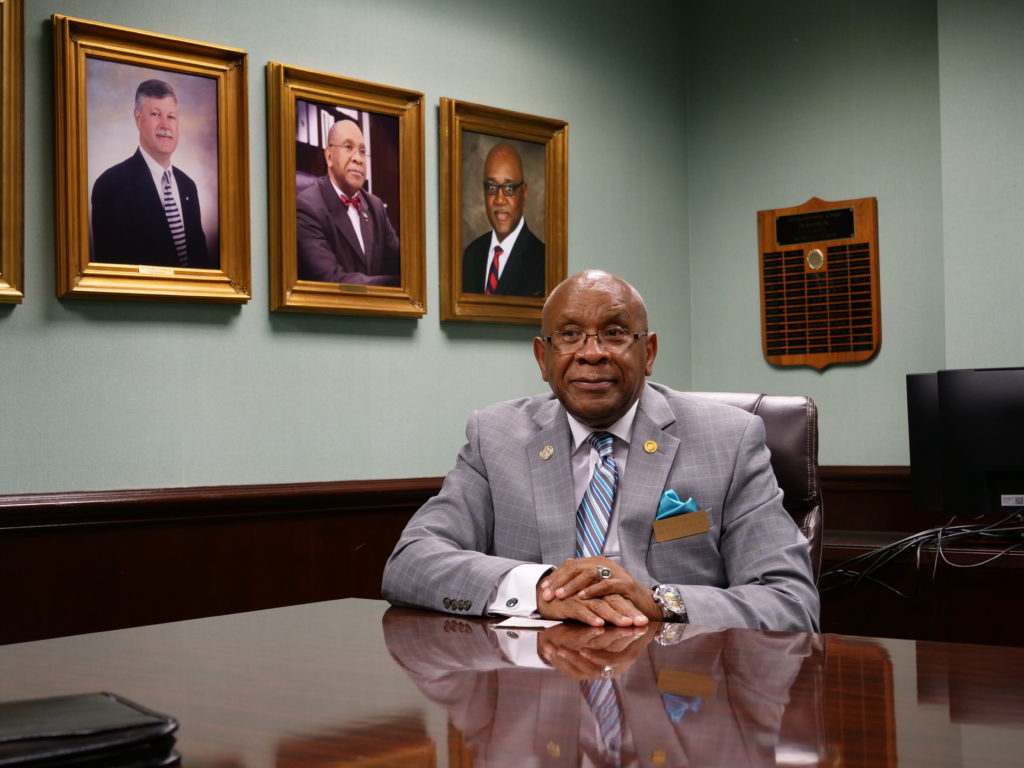

While Griffin was the first African American president of Halifax Community College, he was no stranger to being the first African American person to hold a position of authority. Griffin was also the first African American professor at Southwest Virginia Community College in Richlands, Va.
Griffin says, “When I went to work at Southwest Virginia, I didn’t know I was the first African American on the staff there with a faculty rank. It never even occurred to me that I could be the first.”
Griffin was successful as a professor and administrator, and eventually moved on to roles at other community colleges, including West Virginia State Community and Technical College (founding president) prior to his presidency at Halifax Community College.
While Griffin didn’t realize that he would be a trailblazer, his career has always centered on providing equitable access to education. He received a bachelor’s degree in teacher education from Bluefield State College and began his career as an elementary school special education teacher. He then pursued a master’s degree in college student personnel services from Western Illinois University and a doctorate of education in community college education from Virginia Polytechnic Institute and State University.
One group that Griffin believes has a lot of power to center equity at the local level are the boards of community colleges. He says that early on he realized that “boards make all the difference in the world because one main thing that they do is pick a president.” He adds, “If you’ve got a board that has one or two people of color on there and they never had someone other than a white male as president, I think it’s almost like taking a leap of faith,” says Griffin. He is grateful to the board of Halifax Community College for their courage in hiring him.
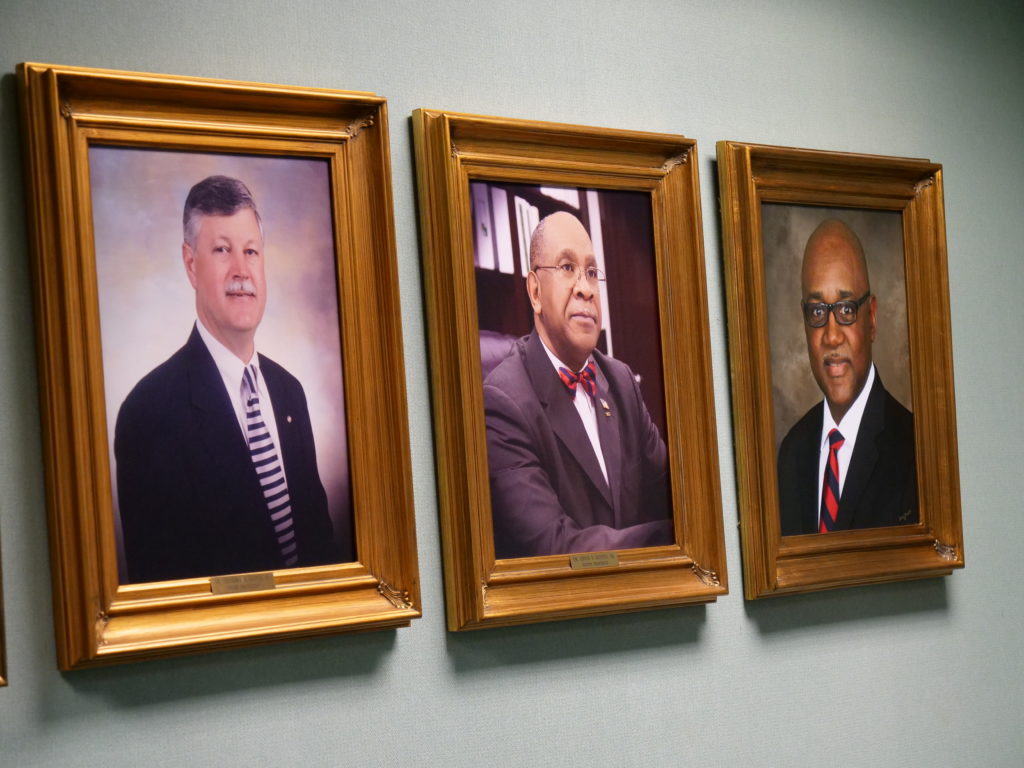

“At my first board meeting, I told them I wanted to thank them for being courageous because they had the courage to appoint the right person.”
-Griffin
He knows that many boards wouldn’t have been comfortable with someone as aggressive as he was in providing leadership, new programs, and services for students, faculty, staff, and the communities that the college served. From the very beginning, Griffin was committed to advocating for students and community success. While he is grateful to have been hired as president, he knows he shouldn’t have been the first person of color to helm the majority African American school.
“I think part of the issue for me with the system is that you almost have to be superman or superwoman to get hired [as a person of color].”
-Griffin
Griffin worked hard to ensure that the path for future community college presidents of color would be easier. When giving mentees advice on working with their board, Griffin says, “I always tell my mentees to study the board, the composition of a board, see who they are and when you go in already know everybody’s name and put yourself in the hot seat because they need to know who you are. Especially when they haven’t seen people like you before.”
During the 11 years he served as the president of Halifax Community College, Griffin’s hard work made a substantial impact on the college and its surrounding community. Throughout his tenure, the college received over $15 million in local, state, and federal grant funding. Additionally, the college was the recipient of the 2016 Advancing Diversity Award, given by the American Association of Community Colleges (AACC), and the 2017 AACC Community College Safety Planning and Leadership Award.
Individually, Griffin is also the recipient of prestigious awards, including The Order of the Long Leaf Pine in 2017 for his exemplary service to the state of North Carolina by Gov. Roy Cooper, and the Governor’s Living the Dream Award and the Distinguished West Virginian Award.
Despite all the praise Griffin’s work has received, at the end of the day, he says, “It’s most important for students to know why we’re here. It’s nice being president, but it doesn’t matter if we aren’t serving our students and we aren’t serving our community. This is why I established the Dr. Ervin V. Griffin, Sr. Presidential Scholarship program in our foundation and started the endowment with a $50,000 personal check. At my retirement gala, we raised another $33,505 giving the fund over $83,000 but still short of my goal of $100,000. Since my retirement, I have continued to raise funds for the Griffin Presidential Scholars Program and on June 21, 2021, I made the final donation of $2,652 to bring the endowment fund to $100,000. Providing funds for current and future students has been one of the highlights of my presidency and life.”
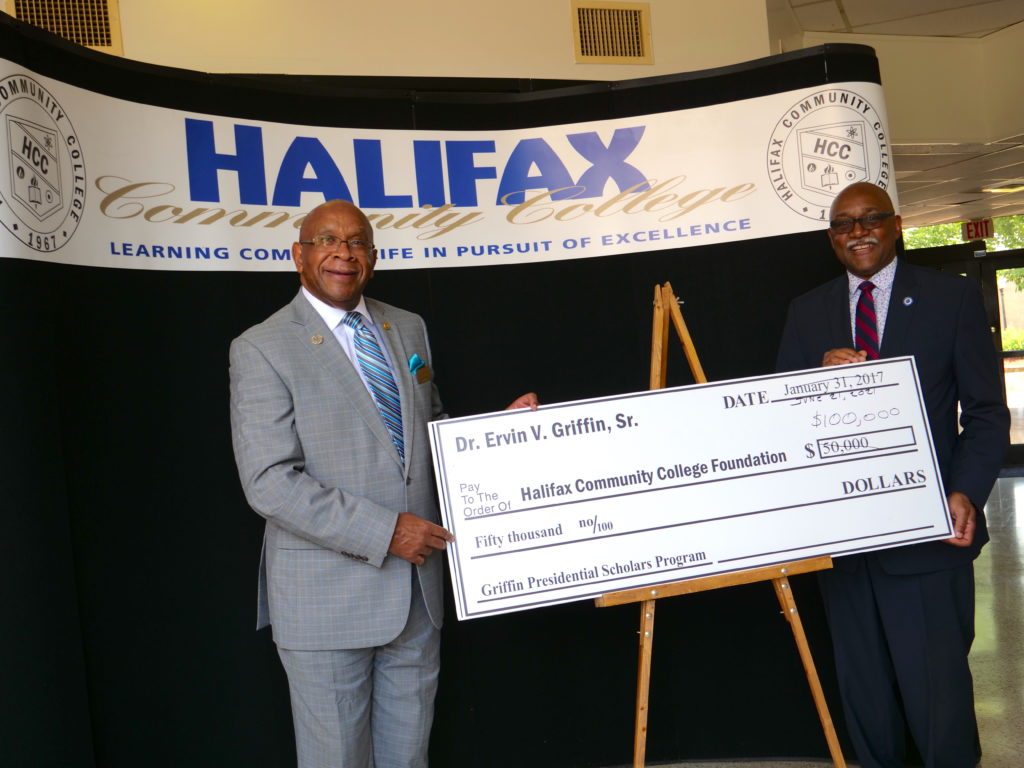

When Griffin retired in 2017, he knew the work was still not done. He’s glad that current president, Dr. Michael Elam, is continuing to pursue equity work at Halifax Community College, but there is still work left to do on the system level.
“We need to have these conversations about diversity, equity, and inclusion and question why we don’t have more African American presidents. Do we have any Hispanic presidents? Why don’t we tackle the tough things that make us a little bit uncomfortable?”
Dr. Ervin Griffin, president emeritus of Halifax Community College
Despite the distance North Carolina still has to go, Griffin believes in the value of the community college system.
“I think the North Carolina Community College System is one of the best, if not the best in the world.”
-Griffin
You can find more about the profiles and project on the Belk Center’s NCCCS History Project Trailblazer Profiles site. Stay tuned to EdNC.org as we republish the Trailblazer Profiles as they are released.
